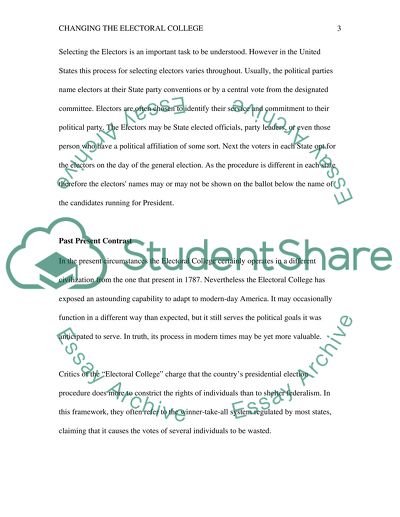Cite this document
(“Changing the Electoral College Essay Example | Topics and Well Written Essays - 2250 words”, n.d.)
Changing the Electoral College Essay Example | Topics and Well Written Essays - 2250 words. Retrieved from https://studentshare.org/miscellaneous/1502089-changing-the-electoral-college
Changing the Electoral College Essay Example | Topics and Well Written Essays - 2250 words. Retrieved from https://studentshare.org/miscellaneous/1502089-changing-the-electoral-college
(Changing the Electoral College Essay Example | Topics and Well Written Essays - 2250 Words)
Changing the Electoral College Essay Example | Topics and Well Written Essays - 2250 Words. https://studentshare.org/miscellaneous/1502089-changing-the-electoral-college.
Changing the Electoral College Essay Example | Topics and Well Written Essays - 2250 Words. https://studentshare.org/miscellaneous/1502089-changing-the-electoral-college.
“Changing the Electoral College Essay Example | Topics and Well Written Essays - 2250 Words”, n.d. https://studentshare.org/miscellaneous/1502089-changing-the-electoral-college.


